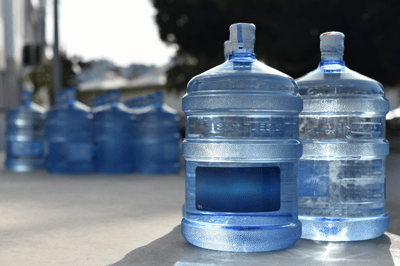.png?width=614&name=article%20hurricane%20preparedness%20ida%20essential%20items%20(1).png)
When it comes to hurricane season, we're not out of the water yet. Restocking essential supplies is a crucial part of the recovery process.
On the road to recovery, it's important to carve out time to restock your emergency inventory with items you used to the fullest during and after the storm. With supermarket shelves scarce following a hurricane, finding supplies could prove to be a nightmarish experience.
Here are the items to get now, while they are still readily available.
WATER

Access to clean water is essential during a natural disaster. FEMA recommends having at least 3-days' worth of water stored away in case of emergency; One gallon per day for each family member. If you have the storage space, aiming for a 2-week supply is the safest bet.
BATTERIES
.png?width=400&name=water%20hurricane%20(1).png)
Start stocking up on batteries and check to make sure your flashlights still work. Alkaline batteries, particularly AA and AAA, are must-buys, but make sure to grab some D batteries and 6-volt lantern batteries as well to power larger flashlights and lanterns.
FUEL
.png?width=399&name=water%20hurricane%20(3).png)
After a really bad storm, fuel becomes liquid gold for many residents. Fill up your empty cans today with both pure and non-ethanol gasoline to avoid the rush.
If you ran a generator during the outage, take the time to give it some love. Check the oil levels and, if needed, change it according to the manufacturer guidelines. Maintaining the filters will help prevent the fuel lines from clogging up.
ICE
.png?width=411&name=water%20hurricane%20(2).png)
Once your freezer powers off, your food becomes a ticking timebomb. Having ice on-hand can help prolong the shelf life of your perishable items. Start building up your ice reserves as soon as your freezer is back in working condition. Freezing water in plastic bottles and cardboard jugs creates large "cubes" that don't melt as quickly. Just remember to leave a couple of inches empty at the top, so the water has room to expand when it freezes.
NON-PERISHABLE FOODS
.png?width=417&name=water%20hurricane%20(4).png)
As grocery stores start to open back up, non-perishable foods — foods that don't need to be refrigerated or cooked — should be the first thing on your list. According to the CDC, canned foods can last up to a year on your shelf.
And if you haven't already, remember to...
Register for mobile banking
Make sure you are registered for online and mobile banking. Doing so will make accessing your money during the storm much easier. If you are already registered, make it a point to memorize your username and password so that if you get locked out during a hurricane, you'll have the information needed to unlock it yourself.
Take photos of your home
Have you ever had damage dealt to your home and thought I wish I had taken pictures of it beforehand? Well, now is the time to do that.
According to insurance adjuster Stephen Hadhazi, you should take as many photos as you possibly can of your home, including good close up shots of your roof shingles and siding.
"If you're able to show the insurance company 'this is what it looked like the day before the storm', then your claim is going to get settled a whole lot faster," says Hadhazi.
If you found this article helpful, subscribe to our blog and have weekly financial insights delivered to your inbox.





